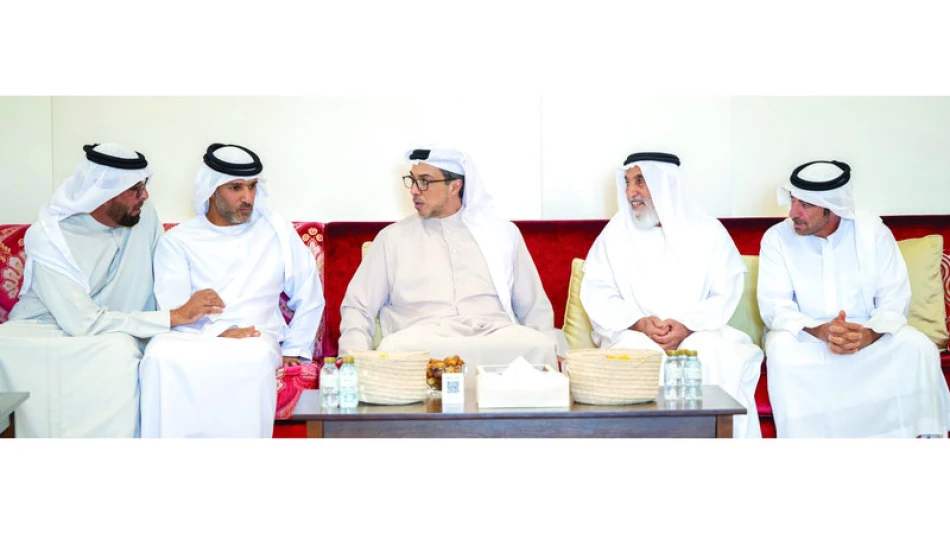
Mansour bin Zayed Offers Condolences Following the Passing of Hamad bin Jaber Al Hameli
UAE Deputy President Sheikh Mansour Offers Condolences in Personal Visit to Grieving Family
Sheikh Mansour bin Zayed Al Nahyan, UAE's Deputy President and Deputy Prime Minister, made a personal condolence visit to the Al Hameli family in Abu Dhabi, demonstrating the Emirates' tradition of high-level leadership engagement in community mourning rituals. The visit underscores the UAE's cultural emphasis on personal relationships between rulers and citizens, even during private family tragedies.
High-Level Condolence Visit Reflects UAE's Governance Style
Yesterday, Sheikh Mansour visited the Ghadeer Majlis in Abu Dhabi to offer condolences to Hamid bin Rashid Al Hameli following the death of his nephew, Hamad bin Jaber Rashid Al Hameli. The Deputy President also extended his sympathies directly to the deceased's sons, Mohammed and Abdullah.
During the visit, Sheikh Mansour expressed his sincere condolences and heartfelt sympathy, praying that Allah would grant the deceased mercy and paradise, while providing patience and solace to his family and loved ones.
Cultural Significance of Leadership Presence
Personal Touch in Governance
The condolence visit exemplifies the UAE's approach to leadership, where senior officials maintain direct contact with citizens during significant life events. This practice, rooted in Bedouin traditions, serves multiple functions beyond mere courtesy—it reinforces social bonds and demonstrates the accessibility of leadership.
Majlis Tradition Continues
The choice of venue, the Ghadeer Majlis, reflects the continued importance of traditional meeting spaces in UAE society. These majlis gatherings serve as forums for community interaction and maintain cultural practices that predate the nation's modern transformation into a global business hub.
Broader Context of UAE Social Fabric
Such personal interventions by senior leadership distinguish the UAE's governance model from many other developed nations, where heads of state typically limit public appearances to official ceremonies. This hands-on approach has contributed to the UAE's social stability and citizen satisfaction ratings, even as the country rapidly modernizes and diversifies its economy.
The practice also serves diplomatic purposes, as foreign observers often note the UAE leadership's commitment to traditional values alongside progressive policies—a balance that has become central to the nation's international image and soft power projection.
Most Viewed News

 Sara Khaled
Sara Khaled






